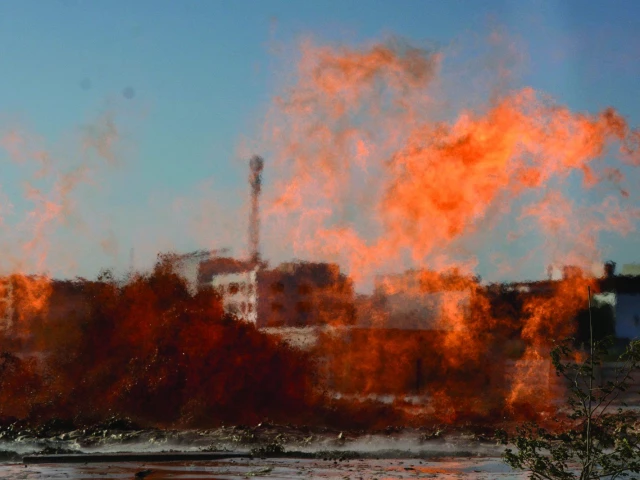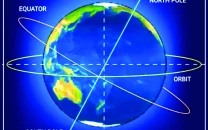Gas pocket found in Karachi during test well drilling
Initial assessments suggest the gas may be biogenic methane, formed from organic matter decomposition.

A gas pocket has been found during the excavation of a test well in Karachi's Korangi Creek area, Express News reported. TPL Properties, a real estate developer, announced the discovery and confirmed the development in a notice issued to the Pakistan Stock Exchange (PSX) on Thursday.
According to the notice, the initial technical assessments, along with independent views from industry experts, suggest that the gas may be biogenic methane, a gas typically formed from the decomposition of organic matter.
The company clarified that this discovery is not part of any known natural gas reserves in the region. TPL Properties also noted that, given the nature of the area, it is likely that the gas pocket will naturally dissipate over time, especially if it is left to burn.
The company further stated that the test is part of an extensive study conducted with the cooperation of renowned national and international consulting firms.
The study includes geotechnical assessments, soil composition and contamination tests, electrical resistivity surveys (ER), a comprehensive environmental and social impact assessment (ESIA), and other baseline studies.
A Chinese study, published in 2020, also identified the presence of gas and coal reserves in the Korangi Creek area, revealing that the area has three layers of rocks where gas reserves can be found.
These rocks, known as Myosin, are 20-25 million-years-old and contain underground sweet water reserves and gas deposits. Beneath the Myosin rock layer, lie the Paleocene and Eocene rocks.
The older the rocks, the more hydrocarbon reserves they contain. Drilling data from Korangi Creek and the Indus Delta revealed a high percentage of Total Organic Material (TOC), ranging from 3 to 3.5%, with a kerogen type III, indicating the promising possibility of methane gas reserves and coal seams.
A Chinese research group's four-year study on the Indus Delta found that oil and gas exploration activities near Karachi's coast were unsuccessful due to the absence of structural traps, which are rocks that prevent hydrocarbons from rising.
The announcement comes after a massive fire erupted early Saturday morning near an oil refinery in Karachi's Korangi area, which has now been raging for over five days.
The incident, which occurred late on the night of March 28 prompted TPL Properties to take immediate steps to manage the situation. The company assured stakeholders that all necessary measures have been taken, and relevant parties have been informed.




















COMMENTS
Comments are moderated and generally will be posted if they are on-topic and not abusive.
For more information, please see our Comments FAQ